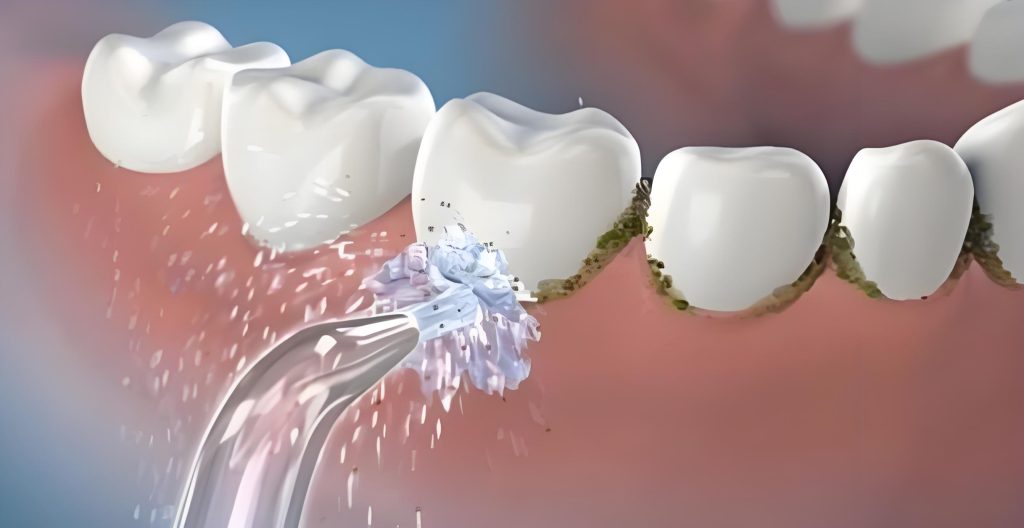In the grand tapestry of our daily routines, there often exists a seemingly mundane yet profoundly impactful thread—oral hygiene. While many of us brush our teeth out of habit or to avoid the embarrassment of bad breath, the significance of maintaining good oral health extends far beyond aesthetic concerns and social awkwardness. It is, in fact, a cornerstone of overall well-being, influencing not just our mouths but our bodies, minds, and even our quality of life. This article delves into the myriad reasons why oral hygiene habits should be celebrated as the unsung heroes of our health journey.

1. The Gateway to Systemic Health
Our mouths are more than just the entry points for food and the organs of speech and taste; they are also interconnected with the rest of our bodies through the bloodstream and lymphatic system. Poor oral hygiene can lead to the buildup of plaque, a sticky film of bacteria that feeds on food particles and produces acids. Over time, these acids erode tooth enamel, causing cavities, but their journey doesn’t end there. When plaque isn’t removed regularly through brushing and flossing, it can harden into tartar, providing a breeding ground for harmful bacteria that can cause gum disease (gingivitis) and, if left untreated, periodontitis.
Periodontitis is a severe form of gum disease that can destroy the bones and tissues supporting teeth, leading to tooth loss. More alarmingly, the bacteria involved in gum diseases have been linked to systemic conditions such as heart disease, diabetes, respiratory infections, and even Alzheimer’s disease. Research suggests that the inflammation triggered by gum infections can contribute to chronic inflammation elsewhere in the body, exacerbating these conditions. Therefore, maintaining oral hygiene is not just about keeping your teeth pearly white but about safeguarding your entire system from potential health crises.
2. A Boost for Your Immune System
Our immune systems are finely tuned to protect us from a myriad of threats, but they can be overwhelmed if our defenses are constantly compromised. The oral cavity harbors a diverse microbiome, a community of microorganisms that, when in balance, contributes positively to our health. However, an imbalance—often due to poor hygiene—can allow pathogenic bacteria to proliferate. These bacteria can enter the bloodstream through gum bleeding or tiny cracks in the enamel, traveling to distant organs and disrupting immune function.
Regular brushing, flossing, and dental check-ups help maintain a healthy oral microbiome, reducing the load of harmful bacteria and, consequently, the burden on the immune system. A strong immune system is better equipped to fight off infections, recover from illnesses, and maintain overall health. Thus, oral hygiene practices are indirectly bolstering our body’s first line of defense against disease.
3. The Role of Nutrition and Digestion
Good oral health directly affects our ability to consume and digest nutrients efficiently. Teeth that are decayed, missing, or poorly maintained can make chewing difficult, leading to a diet that is heavy on soft, processed foods and light on essential nutrients like fiber, vitamins, and minerals. Poor chewing can also lead to indigestion, as larger food particles are harder for the stomach and intestines to break down.
Conversely, a healthy mouth allows for thorough chewing, which not only aids in the breakdown of food but also stimulates saliva production. Saliva is crucial for neutralizing acids in the mouth, washing away food particles, and containing enzymes that begin the digestive process. By maintaining optimal oral health, we ensure that our digestive system functions smoothly, facilitating the absorption of nutrients and the elimination of waste.
4. The Impact on Mental Health and Self-Esteem
The connection between oral health and mental well-being is often overlooked but profound. A bright, healthy smile can significantly boost self-confidence and social interactions, while dental problems can lead to anxiety, depression, and social withdrawal. The fear of being judged for bad breath, yellow teeth, or missing teeth can be debilitating, affecting personal relationships, professional success, and even daily functioning.
Conversely, investing in good oral hygiene habits can lead to a more positive self-image. Regular dental cleanings, check-ups, and even cosmetic treatments like teeth whitening or veneers can dramatically improve one’s appearance and, consequently, their mental outlook. A confident smile is a powerful tool in navigating life’s challenges, fostering resilience, and cultivating a sense of belonging and happiness.
5. Preventive Measures: Cost-Effective and Long-Lasting
The cost of dental treatments can be steep, particularly when it comes to advanced procedures like root canals, implants, or orthodontics. However, the good news is that many of these issues can be prevented or delayed with consistent oral hygiene practices. Regular brushing and flossing, combined with periodic dental visits for cleanings and check-ups, are cost-effective strategies for maintaining dental health.
By catching problems early—such as cavities, gum disease, or oral cancer—we can avoid more invasive and expensive treatments in the future. Preventive care not only saves money but also preserves the natural structure of our teeth and gums, promoting long-term oral health and function.
Incorporating Healthy Habits into Your Daily Routine
Maintaining good oral hygiene doesn’t require elaborate rituals or expensive products. Here are some practical tips for integrating healthy habits into your daily life:
- Brush Twice a Day: Use a fluoride toothpaste and a soft-bristled toothbrush to gently clean all surfaces of your teeth, including the chewing surfaces and the gum line.
- Floss Daily: Flossing removes food particles and plaque from between teeth and under the gum line, areas that a toothbrush can’t reach.
- Use Antiseptic Mouthwash: An antiseptic mouthwash can help reduce bacteria, freshen breath, and soothe sore gums.
- Avoid Sugary Snacks: Limit the intake of sugary drinks and snacks, which feed harmful bacteria in the mouth.
- Stay Hydrated: Drink plenty of water to keep your mouth moist and to help wash away food particles and bacteria.
- Regular Dental Visits: Schedule regular dental check-ups and cleanings to catch and treat problems early.
Conclusion: Embracing the Power of Good Oral Hygiene
In conclusion, oral hygiene habits are far more than just a ritualistic part of our daily routines; they are essential components of our overall health and well-being. By prioritizing oral care, we not only protect our teeth and gums but also support our immune system, digestion, mental health, and financial stability. The next time you reach for your toothbrush, remember that you’re not just brushing for a pretty smile; you’re nurturing a healthier, happier you. So, let’s celebrate the unsung heroes of our health and commit to nurturing the habits that will serve us well for a lifetime.













































Discussion about this post